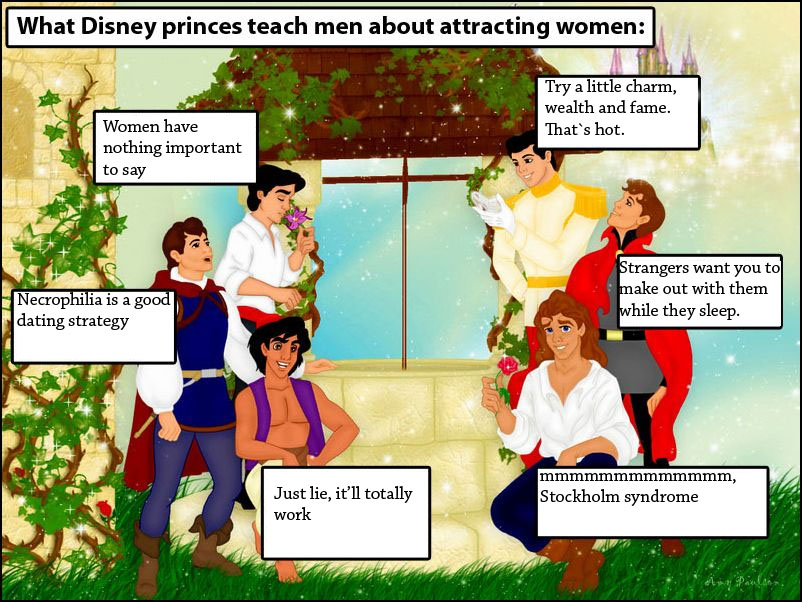Growing up in a home with six sisters, Disney movies and Barbies were pretty much what our lives revolved around. I remember playing with them and I always had to be Belle because I had brown hair and my sisters got to choose who they could be because they were all blonde. And at the time, I began to hate my hair because I wanted to be Cinderella and I couldn't. Never once as a child did I question the underlying messages of those movies, but now that I am older I can see what damaging affects these may have on younger girls and boys. I can see now that these movies were ultimately teaching me what to consider beautiful and desirable.
 These movies, along with other forms of media such as magazines, ads, television and newspapers are trying to tell people how to act, dress, talk, and look. According to a lot of media, in order to be attractive girls must emulate super models. This includes being very skinny, with lots of makeup and fancy clothes. Even the Barbie has changed in the past decade to meet the beauty standards people have imposed. It is really scary to see just how much things have changed, and even worse is what is yet to come. If this is what people consider to be the standard of beauty, I don't know what we could be telling the next generation. What I once considered a harmless toy, is teaching girls that if they want to be pretty, they have to look like a plastic doll.
These movies, along with other forms of media such as magazines, ads, television and newspapers are trying to tell people how to act, dress, talk, and look. According to a lot of media, in order to be attractive girls must emulate super models. This includes being very skinny, with lots of makeup and fancy clothes. Even the Barbie has changed in the past decade to meet the beauty standards people have imposed. It is really scary to see just how much things have changed, and even worse is what is yet to come. If this is what people consider to be the standard of beauty, I don't know what we could be telling the next generation. What I once considered a harmless toy, is teaching girls that if they want to be pretty, they have to look like a plastic doll.Disney movies also teach girls to change themselves in order to find happiness. And in order to be happy you need to find a man. It does no justice for teaching boys either, it is sending them some pretty awful messages about what to expect from women. Again, the women are always categorized in these movies. The beautiful, young women always turn out to be the princesses and the women we know as ugly, old, overweight, or have any unusual physical features always turn out to be the villains.
It also teaches children the differences between gender, race, and class. All of these movies show a woman going after a rich, handsome man to marry. And in almost all the movies, the men and women are white, inadvertently showing that only white people can obtain these things. I remember when the new "Princess and the Frog" came out and the leading lady Tiana and the prince were both African American and people were beyond happy that there was finally a "black princess". I don't think it should have taken as long as it did, and whose to say it didn't happen because of so much pressure from that community? But after seeing the movie, it still shows the African American characters as being poor (the prince having been cut off from his family's wealth, and the new princess growing up poor and earning a living). Her best friend, a white daughter to a very wealthy man, has all the money she could need and originally wants to marry the prince. Her servants include Tiana's mother (also a black woman), and shows all the African Americans in that town as working people. I never saw this as a big deal, but now I realize that in many other movies that share the same audience we are teaching our children to segregate races and classes.
These movies teach children to stereotype and categorize people, and to this day I know that people still do it. As Christensen puts it, "Many students don't want to believe that they have been manipulated by children's media or advertising." These movies and many other forms of media have taught us how to behave and what to expect from others, and as the author mentions, we have been ignorant and happy. This video shows a fathers perspective to the whole popular movie craze and how it affected his children and their upbringing. Like Justine from the article, is it unpleasant to decode where a lot of our identity comes from, but it is necessary if we want to create a better future for ourselves and our children. My question to the class is this; Do you think we should stop our children/younger generations from watching these kinds of movies or cartoons? Or do you think we should let them enjoy such things with the innocence we probably all had at one point and explain it later?







